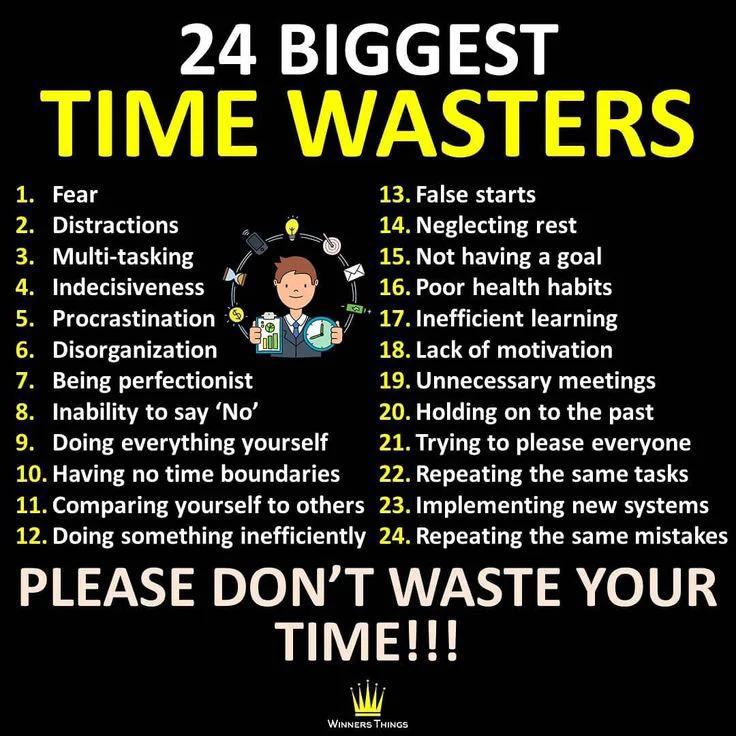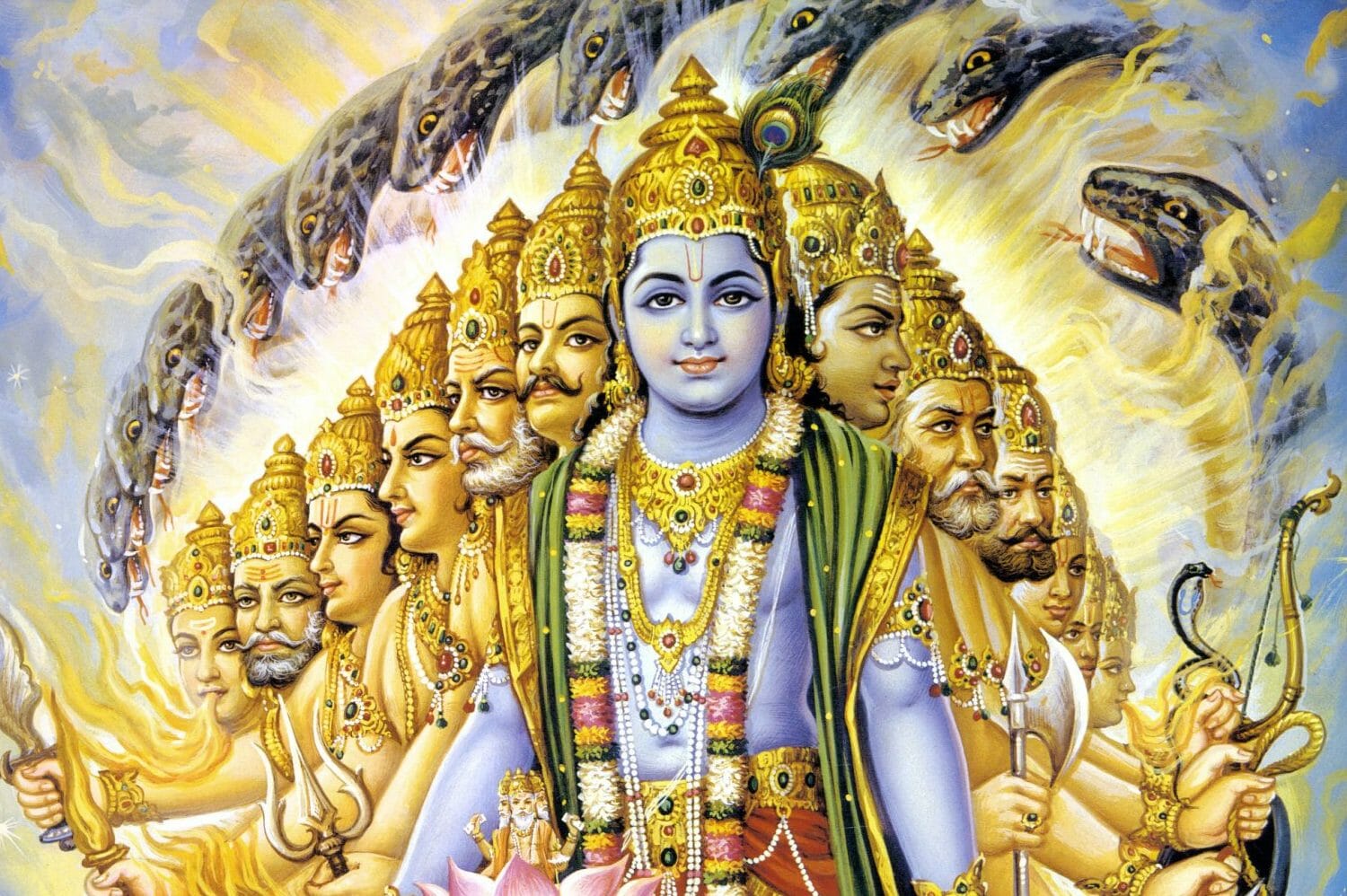Officer ,UPSC, Engineer , Truthful, Unselfish ,Render to Mankind, Active, Happy, Confidence, Higher Acceptance Power, Assume Universal Tolerance, Supreme Power to forgive, Consolidate Mind, Determined. Helpful to Helpless Distress, Punish to Dishonest Culprit.
Monday, December 28, 2020
Saturday, December 26, 2020
Wednesday, December 23, 2020
The World's Billionaires
Sunday, December 20, 2020
Why it is the truth and humanity..
human being need and greed
the greatest fool of the world
Saturday, December 19, 2020
Wednesday, September 9, 2020
Thursday, August 27, 2020
the essence of Bhagavad Geeta
Wednesday, August 19, 2020
everytime remind the God. despite good or bad situation.
the law of life. you must know otherwise you will be in dark
always listen Bhagwat Geeta
The daily task of a good persone
1 WAKE UP EARLY AND START TO PRAY GOD.
2 START TO DO YOGA EXERCISE
3 START TO READ BOOK SPIRITUAL
4 START TO HELP FAMILY ,RESPECT AND PRAY TO MOTHER AND FATHER.
5 START TO HELP OTHER PERSON AT LEAST ONE.
6 START TO HELP AND FEED ANIMALS
7. START TO PROVIDE WATER.
Sunday, August 16, 2020
Bhagavad Gita

The Gita in the title of the Bhagavad Gita means "song". Religious leaders and scholars interpret the word Bhagavad in a number of ways. Accordingly, the title has been interpreted as "the word of God" by the theistic schools,[17] "the words of the Lord",[18] "the Divine Song",[19][20] and "Celestial Song" by others.[21] In India, its Sanskrit name is often written as Shrimad Bhagavad Gita, श्रीमद् भगवद् गीता (the latter two words often written as a single word भगवद्गीता), where the Shrimad prefix is used to denote a high degree of respect. This is not to be confused with the Shrimad Bhagavatam, which is a Purana dealing with the life of the Hindu God Krishna and various avatars of Vishnu.
The work is also known as the Isvara Gita, the Ananta Gita, the Hari Gita, the Vyasa Gita, or simply the Gita
Bhagavad Gita THE ESSENCE OF GEETA

The Bhagavad Gita (/ˌbʌɡəvəd ˈɡiːtɑː, -tə/; Sanskrit: भगवद् गीता, IAST: bhagavad-gītā /bɦɐɡɐʋɐd ɡiːtäː/, lit. "The Song of God"),[1] often referred to as the Gita, is a 700-verse Hindu scripture that is part of the epic Mahabharata (chapters 23–40 of Bhishma Parva), commonly dated to the second century BCE.
The Gita is set in a narrative framework of a dialogue between Pandava prince Arjuna and his guide and charioteer Krishna. At the start of the Dharma Yudhha (righteous war) between Pandavas and Kauravas, Arjuna is filled with moral dilemma and despair about the violence and death the war will cause in the battle against his own kin.[2] He wonders if he should renounce and seeks Krishna's counsel, whose answers and discourse constitute the Bhagavad Gita. Krishna counsels Arjuna to "fulfill his Kshatriya (warrior) duty to uphold the Dharma" through "selfless action".[web 1][3][note 1] The Krishna–Arjuna dialogues cover a broad range of spiritual topics, touching upon ethical dilemmas and philosophical issues that go far beyond the war Arjuna faces.[1][4][5]
Numerous commentaries have been written on the Bhagavad Gita with widely differing views on the essentials. According to some, Bhagavad Gita is written by Lord Ganesha which was told to him by Vyasa. Vedanta commentators read varying relations between Self and Brahman in the text: Advaita Vedanta sees the non-dualism of Atman (soul) and Brahman (universal soul) as its essence,[6] whereas Bhedabheda and Vishishtadvaita see Atman and Brahman as both different and non-different, while Dvaita Vedanta sees dualism of Atman (soul) and Brahman as its essence. The setting of the Gita in a battlefield has been interpreted as an allegory for the ethical and moral struggles of the human life.[5][7][8]
The Bhagavad Gita presents a synthesis[9][10] of Hindu ideas about dharma,[9][10][11] theistic bhakti,[12][11] and the yogic ideals[10] of moksha.[10] The text covers jnana, bhakti, karma, and Raja Yoga (spoken of in the 6th chapter)[12] incorporating ideas from the Samkhya-Yoga philosophy.[web 1][note 2]
The Bhagavad Gita is the best known and most famous of Hindu texts,[13] with a unique pan-Hindu influence.[14][15] The Gita's call for selfless action inspired many leaders of the Indian independence movement including Bal Gangadhar Tilak and Mahatma Gandhi; the latter referred to it as his "spiritual dictionary
Friday, August 14, 2020
Presence
Our life takes place only at a moment called the present. Unlike the present, the past and the future exist in our mind only, as memories and ideas. Or do you think that it's possible to eat from the memories of yesterday's meal, or from ideas about the lunch of tomorrow? Can you love someone yesterday or tomorrow or at least say it to him/her in the past or in the future?
Although everything happens only in the present, the present moment can be realized only by the spirit, when human perceives deeper. Everyone hopefully did experience such a thing in moments when felt deep love towards someone, was amazed by something extremely beautiful, or experienced a profound, breathtaking moment of happiness. Or in emergency situations requiring attention, or while in danger, when it was necessary to act immediately. These are the situations which make man to be present in the present, paying attention to what is happening right now and making thoughts stop for a while.
Even at the peak of sexual power temporarily perishes the world of reason and enables one to feel the present moment, although man often is unable to sense it due to the sole rational life. However, it is the feeling of eternity, which we experience in the present moment, that fills us with happiness; not the situations themselves.
A good joke can also get people to experience the present. The human brain is pursuing the text of the joke and wants to be wise, as usually. The joke, however, ends illogically and in a completely different and unpredictable way, that makes the mind "reset" itself and deactivates it for a while. Then we laugh from the joy of experiencing the present moment.
The state of attention is also typical for musicians. The better the musician, the more attention he pays or, the less thoughts, the greater the ability to feel the music. Thoughts stay in the way while listening to music, because the human mind is slow and insufficient to meet the fast changing of the melody and rhythm.
An illustration of how thinking can hinder in the playing the music is in the story of a pianist who had always stage-fright on concerts and made a lot of mistakes. Once after a concert the teacher was fed up and told him: "Stop thinking about what people think about you! Just play! Play for the music itself! Feel it fully, as if nothing else existed." He told him those words so seriously that his pupil at last took his advice and no longer waited for the approval of the audience. Together with the ideas about what people think of him, the stage-fright disappeared, and he stopped making mistakes. At the same time, his ability to play and sense the music improved. Finally, he became a famous piano virtuoso.
It is similar in other areas of life. People who are attentive use to notice all the "little things", which others overlooked because of constant thinking. It's exactly those important details that lead to perfection of their work and make them become masters. We use to say: those people are clever, gifted, they have talent or a gift from God... but they are successful mostly because they live in the present more than in thoughts. And this gift to perceive reality by spirit and to live vigilantly in the present is something we all got equally. Those who are using this gift only did not hide their talent.
Living in the present, means to be free of the constant flow of thoughts that often completely overlaps our deeper consciousness. For, if you keep on thinking about something all the time, the spirit is not able to express itself. Then we only see a tiny part of the presence, of what is around us and within ourselves, also in a very shallow way. That is why many people fail to enjoy the present. No wonder, when they barely realize it...
To avoid confusion, it must be said that to use the brain as a tool, when we need to do something, is not wrong. That's why we have it. Likewise, it is good remembering the past and taking lessons from it, as well as deliberately planning the future. But it is not right at all if we just constantly think about the past or about the future, and yet our presence, in which we only can really change something, escapes.
What happened a day, an hour, or even a second ago, already belongs to the past. , You cannot change what already happened. So why keep on analyzing in our head all around the old situations, what we have done and what not, what should or should not, could have done or not, and how would it be, if we did it in a different way..? Many times we even think instead of others and we set them in imaginary situations...
Also the visions of the future are only our wishes. But our future will be undoubtedly only as we create it by our thoughts, words and deeds in the present. So why live in the past or in dreams of the future? This way we just rob ourselves of life which is always happening only in the moment of the presence. All the precious moments will pass around us without any use and without bringing us happiness, since we did not outlive them; the opportunities for good changes will remain unnoticed.
“Living” in memories and ideas brings also suffering, because man, by his thinking, defines narrow borders of life and creates the concept of time. Suffering is possible only in this created psychological time which originates in comparing. "Then was a good time, but it is over now... and who knows, what is to happen next."One compares a past situation with a vision of future or long since passed, and recent past, for example yesterday's situation with what happened today. And the present yet runs unwatched further and man is troubled. None the less, he suffers only by exchanging living in present for thinking about life.
“When I work, I think of my girl and when I am with her, I think of work. What should I do?” A lot of people have problems like this. Because they permanently deal with something else as currently happening, life brings them no satisfaction.
If one lives in the present, even unpleasant situations do not bring him suffering. Mental suffering emerges only because of thinking about life situations and comparing. After all, if someone walks down the street, does the fact that something unpleasant happened in his life, for instance a breakup, mean anything? Will flowers, trees and houses around him change, now that he has no partner? When he walks down the street and does not think about what happened, there is no suffering. If he lives in the present, he sees the life around him as it is, and it fills him with happiness. He sees flowers in their simple beauty, he feels their fine refreshing fragrance, feels the careful hand of the gardener behind them, as well as the power of life that flows in everything and brings life to everything. When one lives in the present, there is no reason for suffering.
The world of ideas is negative also because it is often completely unrealistic. When we think about what happened, what somebody said... we place our own ideas about ourselves and about the others. We modify their properties or completely make them up, so that they fit into our story. Our stories are based, of course, on the actual events, but we often saved them in our memory distorted and changed. We became very good at it, so that we often don't even realize we are doing it.
Mother tells to her son: "I borrowed this thing from her and forgot to return it. And she told me that it is urgently needed. What would she think of me? Should I confess that I remembered, but I preferred to watch TV? Or should I offer her financial compensation for the damage?" One thought follows another, when suddenly there is the right one! "I could not return it to her yesterday because I could not walk. I twisted my ankle." "Stop laughing, can't you see how I'm halting?” she says to the son. She somehow forgot the fact that she only stepped badly on her foot and even that it happened only this evening. A few hours later, she finally leaves to return the borrowed item and tells to her son: "I'm going to return it. Yesterday I couldn't, because of the ankle." The son is surprised: "But mom, you have figured it out. Here, in front of me. "Don't tell me the stupid thing, it was so. You even do not notice that your mother is ill, you only hang out and do nothing at home. I'm leaving now, you only hold me off!"
The human mind cannot leak into the moment of presence. For it is too slow and cumbersome. But it is possible to create your own world within it, a world separated from reality. For many people it seems like a more comfortable solution than living in the eternal presence. So they rather vegetate in their thought creations. But if we live in the memories and ideas, in fact we do not live our life for real. We just imagine it.
Inability to stop constant thinking is a problem, which most people suffer from. We are slaves enslaved by our own thoughts. Along this thinking we barely notice what we are doing - otherwise we could not be destroying the possibility of life on earth and repress the rests of our spiritual abilities, which could have been still waken up to the life. However, let us not forget that the human brain is bound to the material. This means that the possibility to live in the world of imagination, which we created in our thoughts, will once end for each of us, forever. Only what revived its own life in the eternal presence will remain.
Talent
There is nothing that cannot be learned, and there is no talent which cannot be obtained and mastered. Stories of God's gifted people are spread...
There is an opinion among people that if one has a talent such a person must have been gifted since birth. If someone cannot sing, for example, he may say to himself that he will not learn how to sing because he is not gifted. By the law of "cause and effect" it is not possible to be able to sing without previous practicing.
Thus, if a genius soul is born, special aptitude had to be developed before birth. It is very naive to say the opposite. Stories of God's gifted people are spread only because of laziness. It is easier to talk about "God-given" talent - many times with open jealousy - than to put effort into something, cultivate your own skills and overcome idleness! And particularly this type of people neglects their God-given talent.
There is nothing that cannot be learned, and there is no talent which cannot be obtained and mastered. Anything is achievable if there is volition and determination. Unfortunately, many of us create a mental barrier before starting to learn something. "I am not able to do that, I do not have talent for it..."And many others daily repeat: "...in word, deed, or thought..." it seems that they are not aware of practical impact of the words; in turn, they use power of faith for their disadvantage.
Another source of failure is the desire to get everything immediately and for nothing. To achieve something requires putting someone's effort into it. Jesus' words "...knock and the door shall be open unto you..." cannot be interpreted: "...wait until you will get" but "knock" - be active, partake, and endure to reach your goal. Then the door shall open.
Spoken words reflect whether desire is honest and serious. There is a big difference between "I want to know" and "I want to learn". One who wants to know would like to be already at the end of a goal but one who wants to learn is willing to step on the path toward a goal. There is nothing achievable without self-effort and hard work. There are usually small steps and persistent endeavor (not a great talk) that create a great thing.
Reason for such activity is very important. The reason for being a musician can be driven by the desire to become a famous, well-known, established person with feelings of superiority, or it can be driven by music itself. Music can be comforting or it can be exalted to the spiritual level, replenishing hearts of listeners by Creator's love, by something which is deeper than just pleasure of good music. Motivation is fundamental purpose of deeds. Personal desire conveys also spiritual power which is necessary to achieve a goal. It is driven in the same direction as the true, honest purpose regardless of how the real goal is masked or adorned.
It happens many times: somebody picks up an instrument and fails to play a melody. The player puts it away within couple of minutes, even seconds, saying: "I do not have talent". It is naive to assume that you can master an instrument in such a short time. But if a person pays attention and will not believe that s/he will become a virtuoso immediately, it is possible that after some time s/he will make a nice tune. It seems s/he must have a talent, but reason for success is elsewhere and simple. He would notice that if his finger-hole closing on whistle is wrong, it will make shrill sound. If he would cover holes properly the sound will be clear and nice. If he would notice that opening hole by hole from the end of the whistle makes higher sound, he discovers how to play a scale and therefore melody. Only by accurate blowing, too, is a nice and harmonious tone made. Blowing too strong would cause a higher tone, blowing less than necessary would cause a wobbly tone. It is obvious that a player who pays attention has to notice this. But if someone wants people to be attracted by him, he will not notice such a trifle as a wrong finger hole closing. He is preoccupied with himself, his outlook, thoughts of other people and words about him. He does not pay attention to an instrument. Obviously, he fails to play.
Success can be achieved after all by awareness and focusing on current activity. You might dispute that ability to be focused on, too, is a talent for which one can or cannot be gifted. Concentration is essential for human beings. If you want to do something properly, you have to be conscience and pay full attention to it. You will enjoy what you do; you will thrive and spiritually grow. And after you master your art you will obtain personal assets and possessions and you can be born with this gift again.
Little things make a master the master (not details - that would be perfectionism). Those little things are essential and very important. They cannot be omitted. Here is an example for better understanding. When a carpenter uses a chisel it needs to be done in a correct direction in order to slide the sharpened edge along with wood fibers. If it would be done in opposite direction, wood would sliver and surface would be rough. Everybody who has ever done this knows that if a wood slivers that means the chisel is used in opposite direction. Wood has to be turned in the right direction. Some carpenters turn wood around this way all their lives, because they do not see these "little things" that would show them correct direction for chiseling. These are annual rings on wood. They converge on one side showing the direction for cutting as an arrow.
These little things, which actually represent the basics, are in every art, craft or virtuosity. They open a gate for seeing and knowing; therefore they make a path towards mastery or virtuosity. The key from the gate is consciousness and sensibility.
Another reason why some people are successful is motivation. If achievement is of a generous nature, it creates beautiful lucid radiation and according to the law of uniformity it will be blessed. Desire which is enlightened by true yarning to help others or to relieve ailment will be connected with enlightenment on the same level. It will generate inspiration. The mind will be innocent and enlightened by good and surprisingly simple ideas. Clear inner experience will strengthen a spirit which will help it to be more focused, aware and sensible. The work will flourish even if it will be done for the first time. Success will be obvious after a few days compared to others who perform the activity many years.
Every person carries inside some spiritual spark as an essence of being. No one was created with perfection or being less perfect. We differ from one another by how we manage and develop our spiritual awareness and eventually our earthly skills. Do not waste time by admiring others but dare to take a move forward.
Finding funds: On COP28 and the ‘loss and damage’ fund....
A healthy loss and damage (L&D) fund, a three-decade-old demand, is a fundamental expression of climate justice. The L&D fund is a c...
-
The Samajwadi Party and Bahujan Samajwadi party and the Rashtriya Lok Dal arrived at the specific deal on seat sharing last week. this Alli...
-
Compressed Bahubali gas a new revolution in transportation fuel. A joint initiative of Indian Oil and BPCL HPCL to turn wastagee into gree...
-
On his first visit to his home state Gujarat after a stunning victory in the Uttar Pradesh assembly elections, a grand welcome for Prim...













































